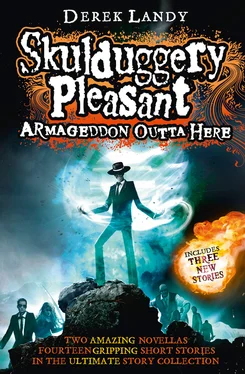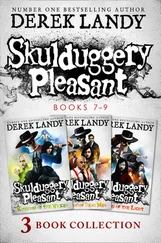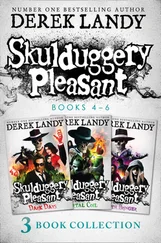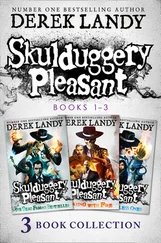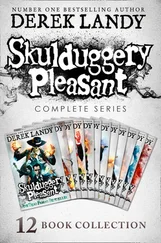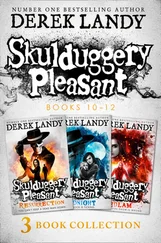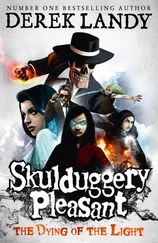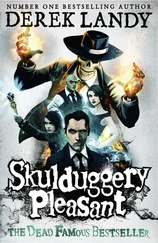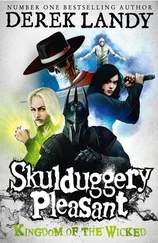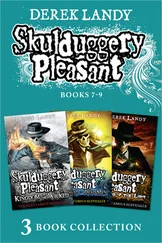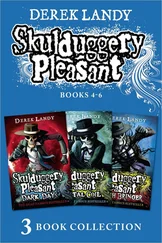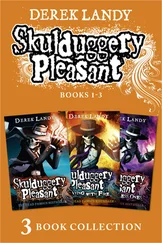Bespoke was first through the doors into the saloon. Inside were a few uneven tables, a solid bar and a cracked mirror. There was a small piano nobody played and the floor was dried mud and sawdust. As far as patrons went, there weren’t many here, but all heads turned, and all mouths dropped open. To see a man of Bespoke’s scarring was not something you’re ever likely to see again, and most people seemed to realise that, so they made sure to stare extra hard when they first met him.
Bespoke tipped his hat to the room and walked up to the bar.
The other Dead Men followed, filing in one at a time. Pleasant came last, found a table in the corner to sit, watching the room from beneath the brim of his hat.
“Good day to you, barkeep,” said Bespoke. “What sort of drinks do you serve here?”
The barkeep, a man who’d seen a lot and heard more, had never been one to allow ugliness to get in the way of making money. There was a time he’d even served a leper who had wandered through town, though he served him out back, away from the eyes of his regulars. Money was money, he figured, and it didn’t matter a whole lot how many stumps for fingers a hand had if what it was holding could add to the coffers.
Fact is, the barkeep hadn’t even washed the mug the leper had used all that much. So the barkeep told the scarred man what was on offer and the scarred man asked for six drinks. Saracen Rue came in as the sixth was poured, and they all drank like thirsty men. Except for Pleasant, of course.
“Now that,” said Ravel, “was a long time coming. And it was welcome.” He smiled at the barkeep. “We’re looking for a friend of ours. Two friends, actually, would’ve just passed through here. Maybe you saw them. Maybe you served them two of these delicious and refreshing beers.”
The barkeep said nothing.
“Our first friend,” said Vex, “is like us – he’s Irish. Tall and dark-haired and kinda pale, though in this sun he’s probably reddened up a little. Wears a glove on his right hand. The other fella wears black and carries a staff with him wherever he goes, the height of a man.”
The barkeep looked at the Dead Men and still said nothing.
“It is very important that we catch up to our friends as soon as possible,” Rue said. “We have news from home that requires their immediate and direct attention. Tragic news. Time is of the essence.”
“Haven’t seen anyone,” said the barkeep.
“You’re sure? Our first friend, he has green eyes. Normally eye colour means very little when talking about a man, but if you’d ever looked into those eyes, you’d remember them. Like a snake’s. And the second, as I said, carries a big old staff. That’s something to stick in the memory, isn’t it?”
The barkeep shook his head. “Can’t help you, fellas.”
“Well,” said Ravel, “that is a shame.”
Bespoke turned to the dusty, dirty patrons. “How about the rest of you? Seen anyone like the men we just described?”
A few people kept staring at Bespoke’s face. Others looked down at their beers. One or two, and this caught the attention of the Dead Men, flickered their gaze to a man who sat alone with his eyes fixed on his hands. He was so knotted up, he was shaking. The long silence that followed grew heavy and seemed to weigh down on his narrow shoulders. It grew so heavy he evidently couldn’t take it any more and he jumped to his feet and went for his gun all at the same time. He made a mess of both, went stumbling and fumbling and panicking, and Hopeless crossed to him so quick no one knew quite what was happening till the man hit the floor with a broken nose and no gun in his hand.
Hopeless walked back to the bar, put down the man’s gun and picked up his drink, finished it just as the man realised he was bleeding.
“What did you do that for?” he said. He had a peculiar accent, German or Dutch or some such.
“You were going to shoot us,” said Vex.
“I was not,” said the man, though there wasn’t a person there who believed him.
“People try to shoot me all the time,” Rue told him. “Usually because of a wife or a daughter or a sister or a mother. The point is, I’m used to having people shoot at me. We all are. But we generally know why we’re being shot at.”
The man got to his feet, blood running freely through the fingers that cupped his nose. “I wasn’t going to shoot you.”
“I’m having a hard time believing you,” Ravel said, “seeing as how you were going for your gun at the time.”
The man didn’t have much to say about that.
“What’s your name, friend?” said Rue.
“Joost,” said the man.
“Joost? What kind of name is that?”
“Dutch,” said Joost.
Rue nodded. It figured. From the accent and all, and anyway, half the world had come west to search for gold.
This was when Anton Shudder stepped forward, and the five other Dead Men at the bar seemed to step back, even though no actual steps were taken. Shudder looked at Joost, and to the poor, panicking Dutchman it seemed like the world was narrowing to a very tight space.
“Tell us what the man with the green eyes said to you,” Shudder said in his quiet voice.
“Church,” Joost managed. “He said something about going to church.”
The church, such as it was, stood on a hill a few miles south. A ramshackle place where not much worshipping went on – and when it did, half of it was half-remembered and most of it was made up. It catered to three different townships, of which Forbidden was one. Its roof sagged and let in water when it rained, its walls groaned and let in wind when it blew, and its doors creaked and let in hypocrites when it suited.
There were two sides of narrow pews and a narrow aisle in between, and there was a table for an altar and the pulpit was a box to stand on. It had once been a barn, and it had never got rid of the comforting smell of cow dung.
In town, there’d lived a man named Wooley, a quick wit who always found amusing, if sometimes crude, names for people and places. He’d come up with a name for this falling-down church-barn that smelled of dung, and it was quite a clever and funny name, but he died of dysentery before he could tell anyone. Mighty unlucky man, that Wooley.
The Dead Men walked up from the bottom of the hill towards this sad-looking church with a single candle burning in its window. It was night, and a warm one at that, and they followed the winding trail between all those graves. They walked single file, with Pleasant in the lead, the moonlight making his skull shine beneath his hat. At the top of the hill the trail widened out, and it was at this point that the Dead Men stood abreast of each other, observing the double doors with the window on one side.
“Nefarian Serpine,” Pleasant called, “if you’re in there, come out. Come get what’s coming to you.”
The candle flickered behind the thin, cracked glass. The doors banged gently in the hesitant breeze. Pleasant looked at Rue, who shook his head. No one was in that church.
Pleasant made to step forward, then stopped. The other Dead Men watched him as he turned slowly. They started to turn, too.
Corpses lunged up from the graves all around them, pushing aside packed dirt and overturning markers of wood and stone. They burrowed out from six feet under and less, moaning and groaning and uttering sounds that whistled through dried-up throats. They clambered to their feet and staggered and lurched and shambled, all going straight towards the seven sorcerers who were slowly backing away from them.
More and more crawled to the surface, breaking through to add their sounds to the growing chorus of the dead. Hundreds of graves, going back sixty years. Some of the dead, zombies they were called, were fresh enough, and some were little more than skeletons. Skulduggery Pleasant might’ve felt right at home at that moment. If he did, he didn’t show it.
Читать дальше
